Jewish History
Ida Kaminska
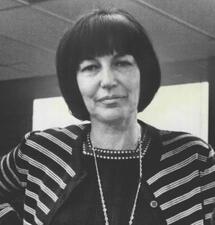
Fay Kanin
Over a sixty-year career as a writer, actor, co-producer, and activist, Fay Kanin was awarded several Emmys and Peabodys, the ACLU Bill of Rights Award, the Crystal Award from Women in Film, the Burning Bush Award from the University of Judaism, and nominations for Oscar and Tony awards. She was the second female president of the Academy of Motion Picture Arts and Sciences.
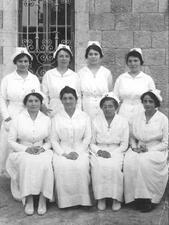
Anna Kaplan
Anna Kaplan was an American Jewish nurse who contributed significantly to developing the concept of nursing as a profession in Erez Israel at the beginning of the twentieth century. She was a leader in founding the nursing school, which later became the Henrietta Szold-Hadassah School of Nursing at the Hebrew University, Jerusalem.
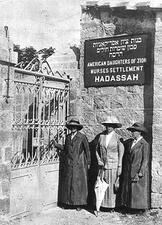
Rose Kaplan
Régine Karlin-Orfinger
Régine Karlin’s resistance activities would alone have warranted esteem and recognition, but she did not desist from further work. Totally bilingual in French and Dutch and even polyglot, since she was also proficient in both English and Russian, she had a brilliant career as a lawyer, characterized by her militant and unwavering support of causes that she considered just.
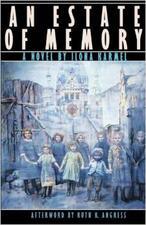
Ilona Karmel
Ilona Karmel transformed details of her experiences as a Polish-Jewish prisoner in Nazi work camps and as a patient undergoing a prolonged convalescence into two compelling and memorable novels. Karmel was a distinguished writer, winning a fiction contest from Mademoiselle and teaching awards from the Massachusetts Institute of Technology.
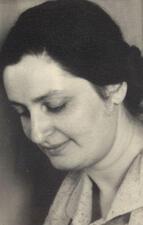
Hannah Karminski
During the mid-1920s and the 1930s in Germany, Hannah Karminski served as secretary of the League of Jewish Women and, from 1924 to 1938, as editor of its newsletter. After the forced liquidation of the League in 1938, Karminski remained in Germany and continued her work in the Reich Association of Jews in Germany, assisting with the kindertransports and welfare. She was deported to Auschwitz and murdered in 1942.

Yehudit Karp
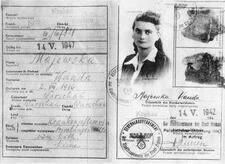
Kashariyot (Couriers) in the Jewish Resistance During the Holocaust
Kashariyot were young women who traveled on illegal missions for the Jewish resistance in German-occupied Eastern Europe during the Holocaust. They smuggled goods, news, and other Jews in and out of the ghettos of Poland, Lithuania, and parts of Russia. While those who fought the Germans within the ghettos are often most celebrated for their heroism, kashariyot were essential in the survival of Jews within ghettos.
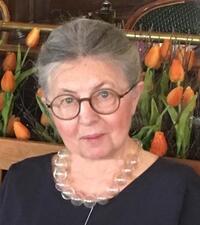
Miriam Katin
Miriam Katin is an award-winning comics artist best known for her Holocaust memoir We Are On Our Own. She was born in Hungary and now lives in New York City with her husband, Geoffrey Katin, a music educator.
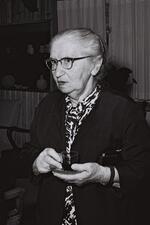
Rahel Katznelson

Shulamith Katznelson
Shulamith Katznelson helped make Israel a home for a wider range of people as both a pioneer of Hebrew-immersion programs and an advocate for Israeli-Palestinian dialogue.
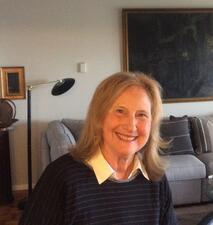
Debra Renee Kaufman
Debra R. Kaufman has been a central voice in sociology, feminist studies, and Jewish Studies for over four decades. Her scholarship has spanned topics such as the role of women in Orthodox Judaism, post-Holocaust Jewish identity narratives, and contemporary American Jewish identity.
Lillian Kasindorf Kavey
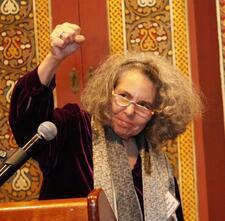
Melanie Kaye/Kantrowitz
Melanie Kaye/Kantrowitz (1945-2018) was a lesbian-feminist writer and editor. She made multiple theoretical contributions to understanding Judaism, lesbianism, and feminism as intersectional identities, extended an awareness of class and economic justice through a Jewish lens, and made visible racial differences within Jewish communities. She advocated Radical Diasporism as a progressive alternative to Zionism.
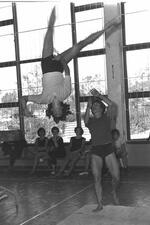
Agnes Keleti
In 1944, when the Germans invaded Hungary, gymnast Agnes Keleti bought fake identification papers and carried the bodies of the dead to mass graves during the battle of Budapest. After the war, she returned to gymnastics; her career highlight was the 1956 Olympics, where 35-year-old Keleti won many medals, including four gold for uneven parallel bars, balance beam, floor exercise and combined exercise-team.
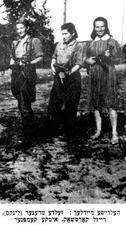
Vitka Kempner-Kovner
Vita Kempner-Kovner was a heroic fighter on the front lines of the underground resistance to the Nazis.

Shula Keshet
Shula Keshet is an Israeli Mizrahi feminist activist, an artist, and a curator. Her activism strives for justice for underprivileged women and men in Israel; as a Mizrahi feminist artist and curator, she has created several exhibitions.
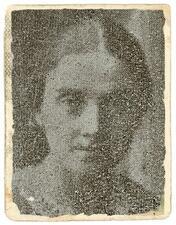
Helene Khatskels
As a member of the General Jewish Workers’ Bund, Helene Khatskels fought to realize socialist ideals about autonomy and liberation. As a Yiddish teacher and writer in Tsarist Russia and later the Soviet Union, she demonstrated a commitment to spreading and inspiring pride in Yiddish culture.
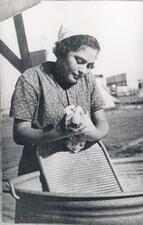
Kibbutz
Although the kibbutz was intended as an equalitarian, democratic utopia, attempts to achieve gender equality have been limited by traditional masculinities and male-controlled spheres and gender inequalities have persisted.

Kibbutz Ha-Dati Movement (1929-1948)
Beginning in 1929, the religious kibbutz (Kibbutz Ha-Dati) movement represented the confluence of progressive ideals of equality and collectivism and traditional customs of Judaism. As a result, women in the movement lived at a crossroads.
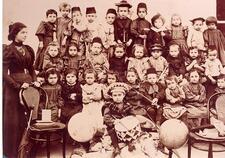
Kindergartens in Palestine: First and Second Aliyah (1882-1914)
Hebrew-language education of the youngest Jewish residents of Palestine was considered key to the continued success of the Zionist movement. The women who taught in these kindergartens, established during the First and Second Aliyah, demonstrated their dedication to the movement and became essential to its success.
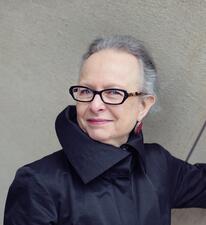
Barbara Kirshenblatt-Gimblett
Barbara Kirshenblatt-Gimblett is an American folklorist who is a scholar of Jewish cultures of Eastern Europe, North America, and Israel, museums, heritage, and tourism, as well as a curator of exhibits and documentarian. She is Chief Curator of the core exhibit of the POLIN Museum of Jewish history in Warsaw.
Ruth Kisch-Arendt
Ruth Kisch-Arendt, an Orthodox Jew, became one of Germany’s foremost performers of lieder (nineteenth–century allegorical poems set to music)through the intense period of anti-Semitism leading up to the Holocaust. After World War II, Kisch-Arendt used her talents to highlight great Jewish composers.
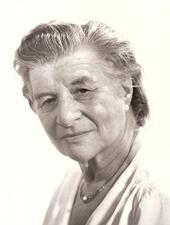
Margot Klausner
Margot Klausner was co-founder and president of Israel’s major film and television studio and co-manager of the Habima Theater. She was an author, film producer, founder of the Israeli Parapsychology Society, publisher of the monthly magazine Mysterious Worlds: A Journal of Parapsychology, and a popular public speaker on theater, film, and the occult in Israel.


